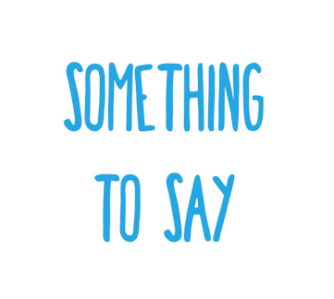We travelled to Speech Matters, a speech and language pathology, to conduct a two-part interview. This post focuses on Yasmin*, 16, who previously received regular therapy from the pathology. During the interview, Yasmin reflects on her experience growing up with a stutter, while also giving insight into various issues surrounding speech disorders.
SOMETHING TO SAY: Hi Yasmin. Could you please introduce yourself and your background?
Yasmin: My name is Yasmin and I am currently a student in Year 11. I began stuttering as an infant and received therapy until around three years ago. While my stutter has improved from severe to moderate, I still stutter on a daily basis.
S: What was it like growing up with a stutter?
Y: Growing up with a stutter was confusing, challenging, and often very frustrating. I feel that there were two parts to it. The first was fighting with others, and the second was fighting with your own self. I’m sure it’s not surprising if I said that as a stuttering child, I got bullied. What I found more frustrating were the teachers though. They believed I had a learning difficulty and gave me teacher aids for reading and writing. Just because I had a stutter, it didn’t mean I found it difficult to read and write. They really didn’t understand my condition.
When I got to high school, my stutter improved and bullying became less of an issue. However, this was when I was the unhappiest and I suffered from depression for several years. I’m not sure if it was because of the experiences I had during childhood, because I felt different, or because of some other factor. It was probably a combination. I definitely felt frustrated that I couldn’t express myself fluently at all times.
S: When did you become aware that there was a stigma around stuttering?
Y: I realised it when I started school. Before that, I didn’t really think that my stutter was a bad thing, because my parents and therapist were so loving and caring. Being teased by other kids, and seeing the looks of frustration from teachers, made me realise that other people didn’t like my stutter.
S: How did you accept yourself and your stutter?
Y: I think it’s believed that accepting yourself is a gradual process. For me, I kind of just woke up one day and realised how pointless it was to dislike yourself, and how even more pointless it was to worry about what others think. This was around three years ago, when I stopped my therapy. I actually became slightly cynical about therapy because if you think about it, it reinforces this idea that our stutter needs to be changed or fixed. I’m glad my stutter has improved, but for the most part I’m happy with the way I speak.
S: What do you wish people would understand about stuttering?
Y: Again, I always become angry when I remember my teachers assuming that I had a learning disability. People need to realise that stuttering is a unique disorder and it has no effect on things like intelligence. I can think and write just as well as someone who doesn’t stutter.
S: What would you say to young people with a stutter who are struggling to accept themselves?
Y: I would say to them that they are capable just the way they are. Also, I would say they should use therapy to improve their stuttering and to learn how to live with it. However, they shouldn’t try and change the way they speak completely.
*Names have been changed to respect the subject’s requested anonymity.
YL

